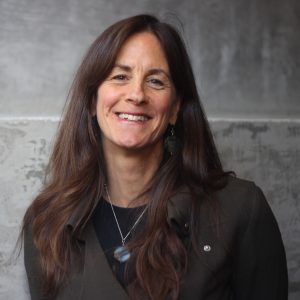If you have a new idea for a business, conventional wisdom says that you need to write a 3- to 5-year business plan and then execute that plan. You want a business loan? Write a business plan. Want a grant? Write a business plan. It’s easy, of course – there are hundreds of websites and plenty of consultants that can help you write a polished business plan. But for all of the business plans written, how many are executed successfully as written? I would wager very few. In fact in these increasingly volatile and transformational times, anyone who could write a successful 3- to 5-year business plan that could actually be executed as written — meaning they could successfully predict the future for the next 3 to 5 years – certainly wouldn’t need to be writing a business plan as they would be wildly successful already!
What is nature’s alternative to the old plan-and-execute model? Nature, actually, has many alternatives to that, one of which is to sense and respond. Nature’s organisms and systems are full of feedback loops constantly operating at all scales of time and space – feedback loops that are composed of perfectly matched sensors, receivers, and responders. The sense-and-respond approach allows appropriate positive outcomes to emerge in nature rather than pushing pre-determined goal forwards, regardless of changing conditions.
How does that feel in a business setting? First let’s imagine a typical staff meeting where someone presents a new idea. In the business world (and in our personal lives), it is far easier and safer to be the one who points out all that is wrong with the new idea and why it won’t work. The standard response to a new idea is “Yes, but…” The discussion of the new idea is typically in offense-defence mode from which there are only two possible outcomes – win or lose. Given how compelling it is to point out what is wrong, the new ideas is much more likely to lose than to win. People leave the meeting feeling smug, angry, defeated, victorious…but certainly not creative and certainly not successful.
Nature does not dwell on what’s wrong. It is much more interested in seeking positive outcomes, whatever that may be for a given set of conditions. So instead of pushing one idea or plan, nature constantly senses and responds, always moving toward individual and common good. How might this work in a business setting? Imagine that same staff meeting, but instead of saying “Yes, but…” the standard response is “Yes, and what I like about that ideas is….. and we could also…”. The new idea is accepted, respected, explored, sensed and responded to. The group leverages its collective intelligence and creatively and collaboratively moves the original ideas towards a positive outcome. With this approach, there are many possible positive outcomes. People leave the meeting with increased energy and creativity, and with feelings of collective success.
When creativity, innovation, and positive outcomes are needed, try sensing and responding with a “Yes, and…” approach and see how it works. Special thanks to Belina Raffy and Applied Improv for sharing the lesson of “Yes, and…”.
Image courtesy of Cara Sucher.

